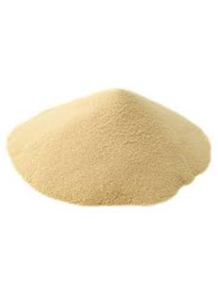Bone Peptone (For Fermentation, Culture Media)
Hydrolyzate obtained from partial digestion of animal bones. Generally by enzyme or acid hydrolysis. It is a complex mixture of peptides, amino acids, minerals and other nutrients. Obtained from components that are collagen and minerals in bones. Bone peptone is generally used as a nutrient source in microbial fermentation processes. It serves as a rich medium to support microbial growth and metabolism.
Bone Peptone is a hydrolyzate obtained from the partial digestion of animal bones. Generally by enzyme or acid hydrolysis. It is a complex mixture of peptides, amino acids, minerals and other nutrients. Obtained from components that are collagen and minerals in bones. Bone peptone is generally used as a nutrient source in microbial fermentation processes. It serves as a rich medium to support microbial growth and metabolism.
Nutrient Composition: Bone peptone provides a wide range of nutrients. This includes peptides, amino acids, minerals (such as calcium and phosphorus), and other organic compounds. This complex mixture makes it a valuable source of nutrients for a wide range of microorganisms.
Rich source of nitrogen: Nitrogen is an essential element for the synthesis of proteins and nucleic acids. Bone peptone is rich in nitrogen-containing compounds. It serves as an excellent source of organic nitrogen for microbial growth.
Trace elements and minerals: mineral content in bone peptone Including calcium and phosphorus Can be beneficial to organisms with specific nutritional needs. These minerals are important for cellular processes and structural components.
Collagen-derived peptides: Collagen present in bones is a rich source of peptides. Collagen-derived peptides in bone peptone may contribute to nutrition and may have specific benefits for certain microorganisms.
Biotechnology Applications: Bone peptone is commonly used in biotechnology applications. This is especially true in the production of enzymes, antibiotics and other biological products. The nutrient complex of bone peptone can increase the yield of the desired product in fermentation.
Batch and Fed-Batch Fermentation: Bone peptone can be added to the fermentation medium at the beginning of the process in batch fermentation. In feed-based fermentation, supplementation may be done periodically to maintain microbial growth and productivity.
Alternatives to plant peptone: In some cases, bone peptone may be used as an alternative to plant peptone. They provide different nutritional details. and may be selected according to the specific needs of microorganisms and the characteristics of the fermentation process.
| Mechanism |
- |
| Appearance |
- |
| Longevity |
- |
| Strength |
- |
| Storage |
- |
| Shelf Life |
- |
| Allergen(s) |
- |
| Dosage (Range) |
- |
| Recommended Dosage |
- |
| Dosage (Per Day) |
- |
| Recommended Dosage (Per Day) |
- |
| Mix Method |
- |
| Heat Resistance |
- |
| Stable in pH range |
- |
| Solubility |
- |
| Product Types |
- |
| INCI |
- |



